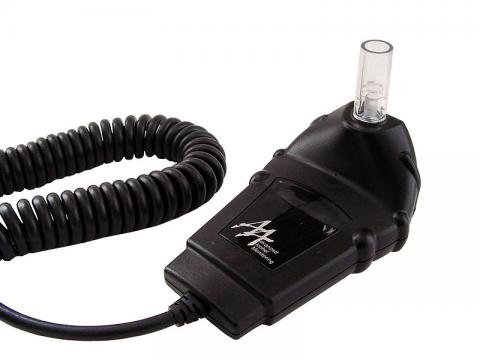
Driving while intoxicated (DWI) is a crime in all 50 states. For the most part, a suspected drunk driver with a blood alcohol concentration (BAC) level of .08% or higher is presumed to be legally intoxicated, triggering an arrest and subsequent charge for DWI. The main instrument used to read BAC levels throughout the country at the scene of an arrest is called a breathalyzer.
What is a Breathalyzer?
A breathalyzer is a device that measures the amount of alcohol in your body. The device is inserted into the mouth and the suspected drunk driver is asked to blow air into it for the device to measure and record a BAC level. In addition to a breathalyzer test, the arresting police officer may request a blood test, another type of chemical test that measures the amount of alcohol in your body. For purposes of this post, we will only be examining the accuracy of breathalyzer tests.
How do Breathalyzers Work?
As discussed above, the suspected drunk driver is asked to blow into a mouthpiece and then the device provides a reading of the person’s BAC level. Because the breathalyzer is a technological device, accuracy varies from manufacturer to manufacturer and by police department to police department. The police officer administering the test may operate the device the wrong way or foreign substances (not air) may cause an error in reading the results of the test.
Why are Breathalyzers Used in the Field or at Place of Arrest?
Law enforcement personnel use breathalyzers in the field because they are portable, lightweight, easy to administer, and convenient. The test result also helps police officers establish probable
cause to make the arrest. The conduct observed, the police officer`s investigation, and BAC reading quickly form the basis of the arrest and supports the DWI charge.
In contrast, to determine the suspected drunk driver’s’ BAC level, an off-the-field blood test needs to be administered. Blood tests are inconvenient and invasive. They must be drawn in
a hospital or clinical setting. If the suspected drunk driver refuses or fails to consent to a blood test, then the arresting officer must obtain a warrant to force the collection of the blood sample.
How are Breathalyzer Results Challenged in Court?
A DWI defense lawyer examines the evidence collected for potential errors in the administration or recording of the test results. The devices themselves may be defective. Foreign objects may
produce inaccurate readings. The police officer may not have been trained to operate the breathalyzer accurately. Each case is unique and all of the evidence needs to be examined for inaccuracies and inconsistencies. A successful challenge may result in the reading being excluded as evidence.
Hire a Texas DWI Defense Firm
If you or someone you know has been charged with DWI in the Plano or Denton areas of Texas contact The Law Office of Kimberly Griffin Tucker, P.C. Our team of experienced lawyers and legal professionals will provide information, analyze your case and recommend a prompt solution to your DWI matter, including trial if necessary.
(image courtesy of Rsheram)
